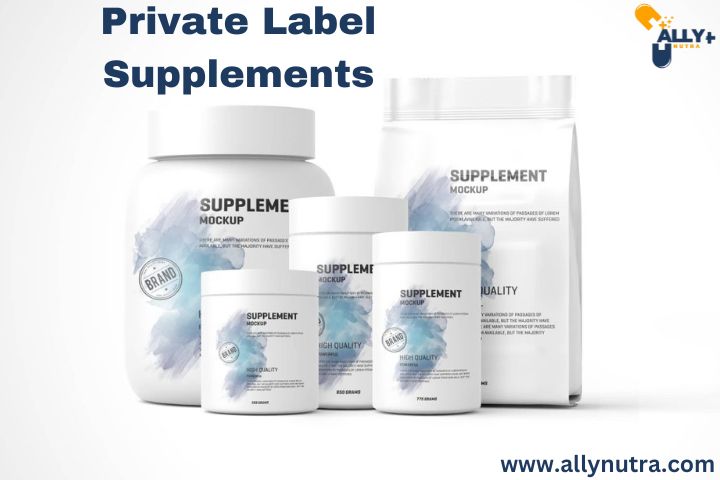The global dietary supplement industry is experiencing remarkable growth, with projections estimating its value to reach $194.63 billion by 2025.
This surge presents a lucrative opportunity for entrepreneurs to enter the market through private labeling—a strategy that allows businesses to sell products manufactured by another company under their brand name. If you’re considering venturing into the supplement industry, understanding the essentials of private-label supplements is crucial.
What Are Private Label Supplements?
Private label supplements are products produced by a manufacturer and sold to retailers or businesses, which then brand and market them as their own. This approach enables companies to offer a diverse range of supplements without the need for extensive manufacturing facilities or expertise. The manufacturer handles production, while the retailer focuses on branding, marketing, and sales.
Advantages of Private Label Supplements
- Cost-Effective Entry: Establishing a manufacturing facility for supplements requires significant investment. Private labeling eliminates this need, allowing businesses to enter the market with lower overhead costs.
- Brand Control: Companies have the freedom to design their own branding, packaging, and marketing strategies, fostering a unique identity in the marketplace.
- Speed to Market: With established manufacturing processes, private-label supplements can be brought to market more quickly compared to developing products from scratch.
- Quality Assurance: Reputable manufacturers adhere to stringent quality control standards, ensuring that the supplements meet safety and efficacy requirements.
Steps to Launching Your Private Label Supplement Brand
- Market Research: Identify your target audience and understand their specific health needs and preferences. This insight will guide product selection and branding decisions.
- Select a Reliable Manufacturer: Choose a manufacturer with a proven track record in producing high-quality supplements. Consider factors such as certifications, production capabilities, and compliance with industry standards.
- Develop Your Brand Identity: Create a compelling brand story, logo, and packaging design that resonates with your target market. Effective branding can differentiate your products in a competitive landscape.
- Ensure Compliance: Familiarize yourself with local regulations governing dietary supplements in your region. Compliance with these regulations is essential to avoid legal issues and build consumer trust.
- Implement Marketing Strategies: Develop a comprehensive marketing plan that includes digital marketing, social media engagement, and partnerships with influencers or health professionals to promote your products.
Challenges to Consider
While private labeling offers numerous benefits, it’s important to be aware of potential challenges:
- Quality Control: Relying on a third-party manufacturer means you must trust their quality control processes. Regular audits and clear communication are vital to maintain product standards.
- Supply Chain Management: Ensure that the manufacturer can consistently meet your demand and handle logistics efficiently to prevent stockouts or delays.
- Brand Differentiation: In a crowded market, distinguishing your brand requires innovative marketing and a clear value proposition.
Conclusion
Private-label supplements present a viable pathway for entrepreneurs to enter the thriving dietary supplement market. By conducting thorough research, selecting a reputable manufacturer, and crafting a strong brand identity, you can establish a successful supplement brand that meets consumer needs and stands out in the marketplace.








